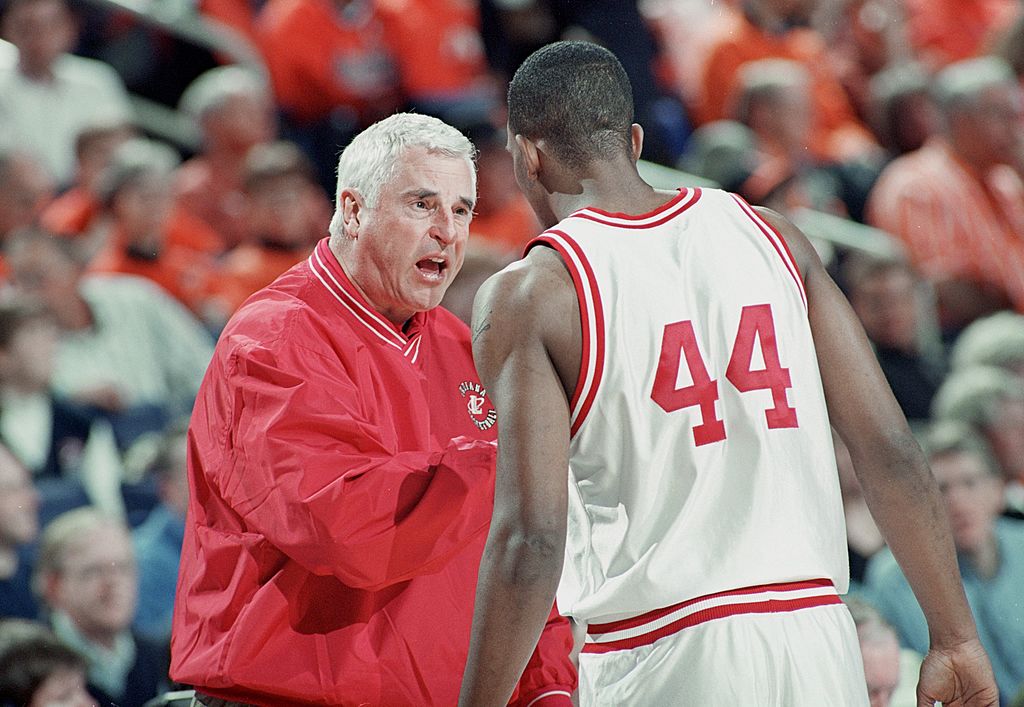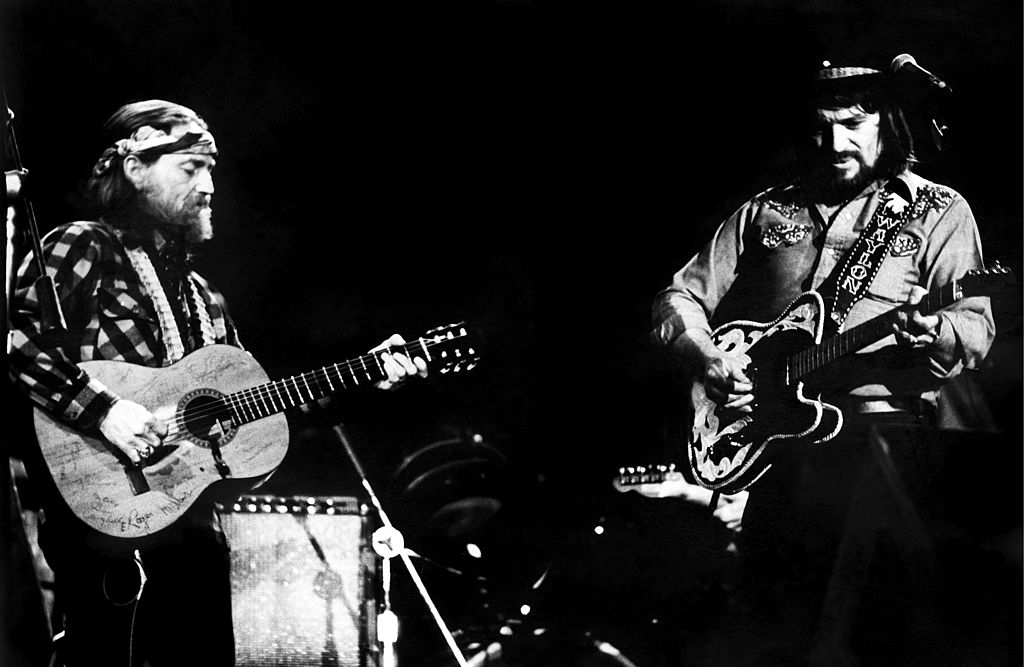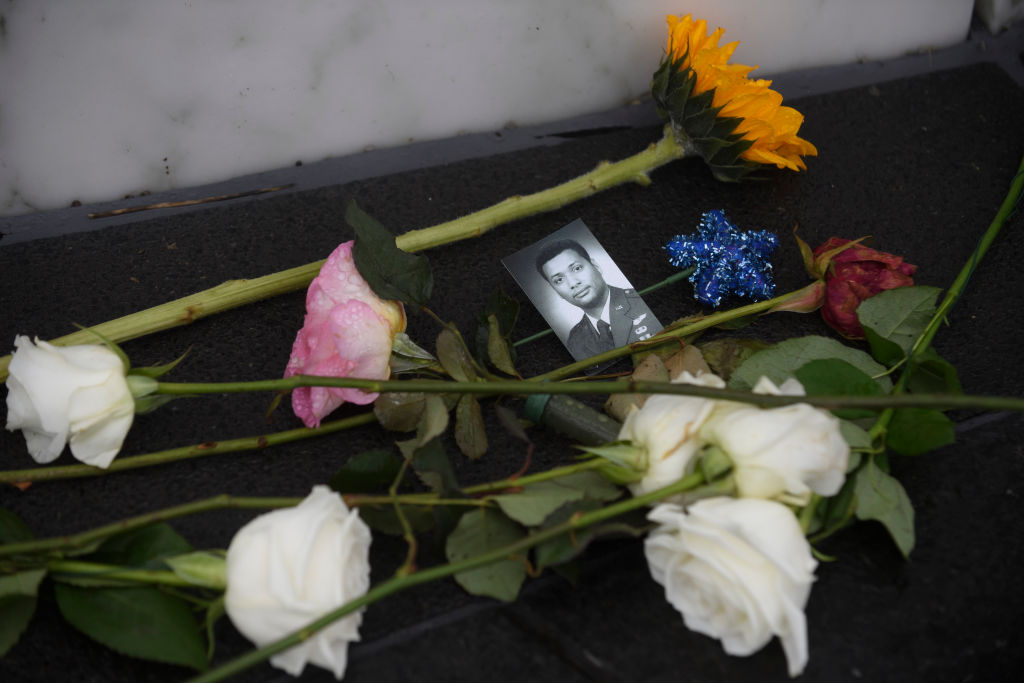Leave country music alone.
On Bobby Knight

The legendary basketball coach represented a vanishing type of American masculinity.
Legendary Indiana college basketball coach Bobby Knight died last week. The response of the media was to attack him in the same way they attacked him while he was alive.
NPR’s Scott Simon, for example, reminded us Bobby Knight “was no teddy bear.” (Teddy bears are the preferred male model in NPR world.) Simon ends his critique of Knight by noting that his intensity would have been forgivable if he’d been doing something important with his life instead of just coaching college ball.
Scott Simon needs to be told that most people are not struggling in a “fight against a deadly disease, or for the survival of an embattled nation,” and they will never face those struggles. The struggles all men (these are the people Knight was coaching) share are those of the everyday—do the right thing, be an honorable and respectful man, dedicate yourself to your family in an unqualified way and make any sacrifice for them. Bobby Knight’s intensity was part of the process of teaching men how to face those struggles.
That Scott Simon doesn’t see this is evidence of how out of touch he is with everyday men.
Bob Costas, in a much more generous assessment of Knight’s contribution to our culture, notes that someone with his view of the world in college sports “wouldn’t fly today.” But does that reflect negatively on Knight or on us?
A few decades ago, our media culture was capable of treating Knight more fairly, or at least they let him speak for himself and noted his achievements. 60 Minutes, for example, did a feature on him in 1980 that is worth a look, mostly because it lets Knight talk about what he’s doing and lays off the vapid moral pontificating.
People interested in improving, Knight said, prefer criticism to compliments. “Praise makes us lazy,” in Knight’s view.
I tell students a version of this tale every semester. There are two kinds of people we call “teacher.” One of them is constantly praising students as to how wonderfully bright they are. The other tells students what they need to learn in order to advance.
My view is that the first kind of “teacher” is in fact misnamed. Such people should be called “cheerleader,” perhaps, or “friend.” But a teacher is not a cheerleader, and, insofar as he is acting in the role of teacher, he is not a friend either, even if he is morally committed to doing something for the student that he knows will aid the student greatly in life. What students need from teachers is instruction, not empty praise.
Costas notes the important distinction between Knight’s critics and his advocates among those who worked with him. Some couldn’t handle Knight’s methods, and they are frequently bitter in their memories of him. But most knew how valuable Knight was to their own advancement.
Knight’s star player Landon Turner was paralyzed in an auto accident before his senior year in college. Celtics coach Red Auerbach, at Knight’s request, not only drafted Turner after he was paralyzed, but he sent him championship watches after the Celtics won the NBA title in 1984 and 1986. Turner, whom Knight believed to have more superstar potential than anyone else he ever coached, remained tight with his former coach and mentor, who wrote the foreword to Turner’s memoir.
Many of Knight’s players viewed him with great respect. Mike Woodson, who had a long pro career as a player and coach, and now has Knight’s old job as Hoosiers head coach, surprised an interviewer who tried to make a dig at Knight’s coaching style. “He was a disciplinarian and at that time in my young life I needed that,” said Woodson. “I lost my dad when I was 14 years old and he became a father figure. And my mother, she loved everything about him.”
How many of Bob Knight’s critics have had this degree of personal impact on real, living young people? Bob Knight represented a form of manhood that is under intense assault in contemporary American culture. Masculine aggression is one thing, but there’s a lot more associated with that personality type: the single-minded commitment, the expertise, the assertive leadership.
In denigrating Knight, our media culture demonstrates its vicious misandry. Our culture, in its short-sighted failure to comprehend just what they have done to build all we have, hates traditional men. It is becoming impossible to build more men like Bobby Knight, and we will all suffer for that.
The American Mind presents a range of perspectives. Views are writers’ own and do not necessarily represent those of The Claremont Institute.
The American Mind is a publication of the Claremont Institute, a non-profit 501(c)(3) organization, dedicated to restoring the principles of the American Founding to their rightful, preeminent authority in our national life. Interested in supporting our work? Gifts to the Claremont Institute are tax-deductible.
The two decades since the 9/11 attacks have revealed that the American spirit is not completely gone in the heartland.
When politics trumps basic humanity.
The rise of pills to curb obesity raises some serious questions about the medicalization of life.
Parents having fewer kids means more societal pathologies.
The American ideal of self-government is increasingly inapplicable to our culture.






